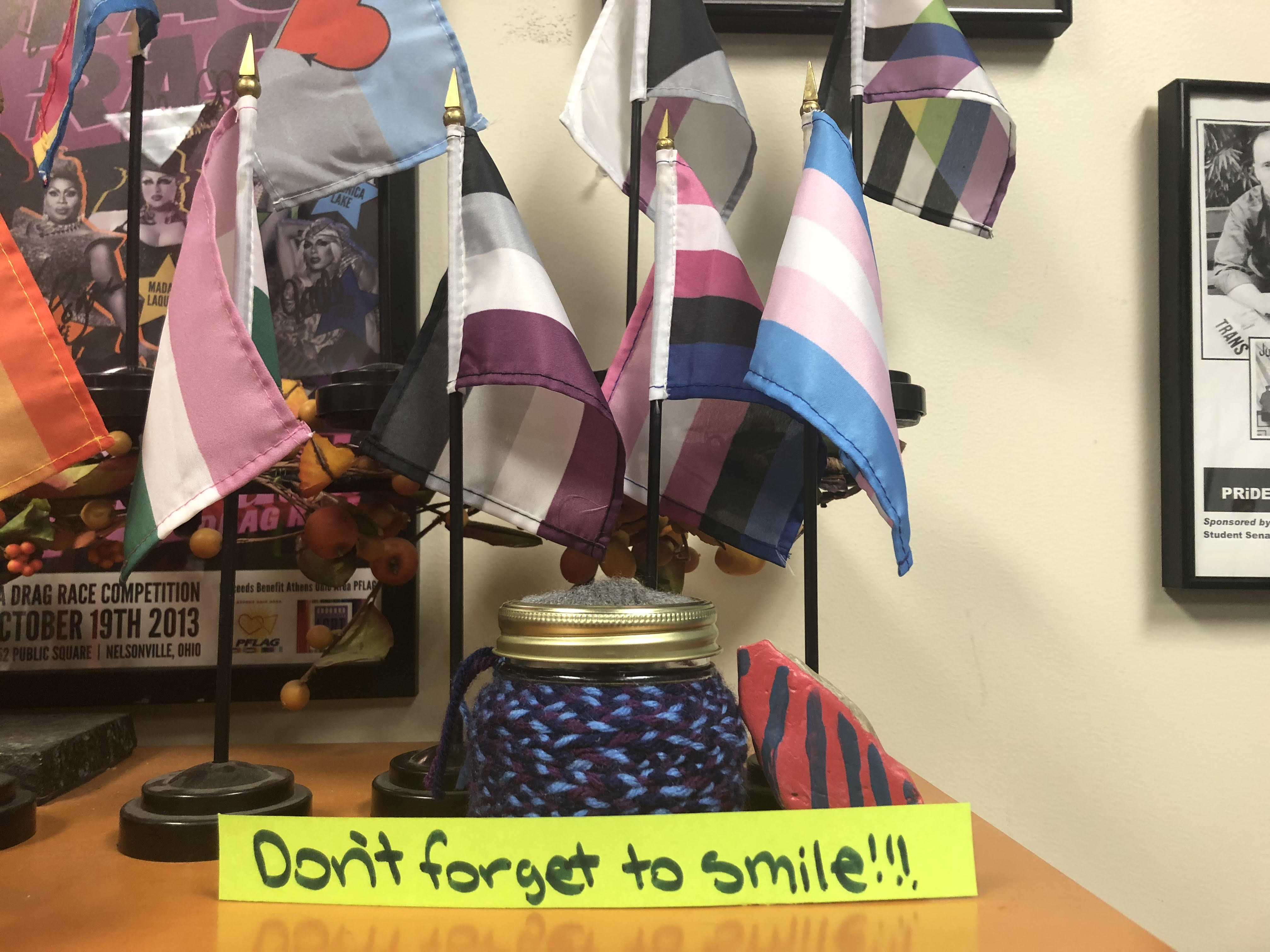
Self-care as Activism
By: Delaney Murray, Mikaela Ashburn
Posted on:
In 2018 it seems like there is always something going on, and there are constantly new causes to fight for.
Julian Shepherd is no stranger to fighting for something. Shepherd is a junior studying English Creative Writing and Women, Gender, and Sexuality Studies and treasurer of Intersectional Feminist Alliance (IFA). Shepherd refers to herself as a student activist and is involved in several campus trainings and activities.
“The on campus actions we take are stuff that URGE (Unite for Reproductive Gender Equity) gives us to do like the abortion positive tour we do every other semester, just advocating for reproductive justice on college campuses,” Shepherd. “That’s what I’ve been doing for the past three years.”
But being heavily involved with activism so often can lead to what is called “activist burnout.” University of California Berkeley Psychology professor Christina Maslach defines burnout as a syndrome of emotional exhaustion. According to GoodTherapy.org, activist burnout can make a person feel exhausted, angry, guilty, and hopeless. And Shepherd is all too familiar with these feelings.
“I was just exhausted, not only because my efforts had been for close to nothing but I think part of activist burn out for me was because if I had accomplished the goal I had wanted I would still have that,” Shepherd said. “I really just wanted to lay in bed for three days or three months and just not do anything at all.”
Shepherd had been involved with activism since she was in high school, and has frequently experienced activist burnout. She remembers her burnout got particularly bad after the 2016 election of President Trump.
“I think even before he (Trump) was elected people were having activist burnout,” Shepherd, “When I graduated from high school the wave of activism I rode in on in college was Bernie getting into the primaries and this big uptick of young voters coming out and getting registered and getting involved and then November came and by the time it rolled around we were dead tired. And then it got worse.”
But it is still possible to fend off many of the symptoms of activist burnout. One way to potentially to avoid burnout — or to treat it once it starts — is self-care.
Alexa Solages, a senior studying event management and nonprofit management and outreach coordinator for the LGBT center, defines self-care as “making sure that you are mentally, physically, emotionally ready to take on the day, the week, the month.”
Solages is also a facilitator of Self Care with Pride, an event put on by the LGBT center every other Tuesday.
“We have different activities that we do, different guest speakers that come talk about everything from self-care and activist burnout to compassion fatigue to an herbalist we have coming this week to talk about some things,” Solages said. “We also do crafts, we did affirmation jars when you need a little pick me up you can reach in your jar and kind of get a little confidence from that jar.”
Shepherd also practices self-care. But her particular strategy for taking care of herself involves many things, and not all of them are things that can be found at Self Care with Pride.
“I do a lot of face masks and self-affirmations and all that stuff is nice, but nitty-gritty self-care for me is getting up, taking a shower, actually doing things I need to do,” Shepherd said. “Sometimes self-care doesn’t feel like self-care, it feels like self-discipline, at least in my specific case.”
Shepherd points out that while self-care, no matter what form it takes, is important for activists, it can be vital for everyone to practice.
“Self-care is important because the days that we live are so hectic and crazy all the time that we often forget to take care of ourselves, whether that’s making sure we’re eating, making sure we’re sleeping enough, exercising, taking a shower,” she said.
Self-care may be practiced with a night in or with simply getting out of bed. But No matter what cause you fight for, or how you practice self-care, there are always ways to avoid burning out completely.

